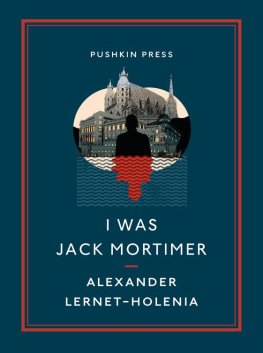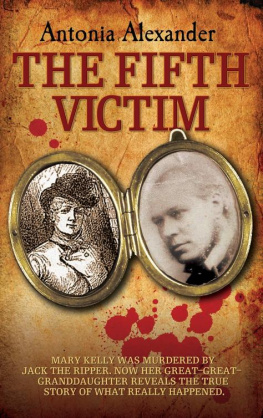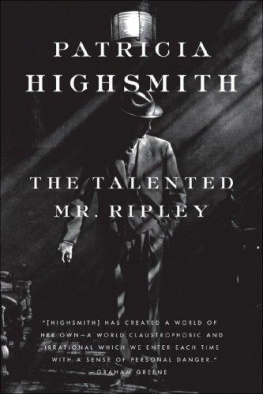Alexander Lernet-Holenia
I Was Jack Mortimer
TRANSLATORS DEDICATION
For Karen
Verzeih! Forgive me! IIpocmu!
UP ON THE HILLTOP MARKET, (behind a row of cabs parked nose to tail, stood a small group of drivers, chatting and smoking cigarettes.
Flocks of pink-footed, iridescent grey-and-white pigeons pecked at the rubbish between the stalls of the steeply cobbled square, or from time to time took of and glided high above before settling on the house gables, in particular on a pink-washed palace, where most of them nested.
The sky was overcast. The rows of windows shone like burnished silver. The air was heavy with the smell of vegetables, flowers and fruit.
It was a mild November day.
Two cabs with passengers pulled out in close succession from the left of the rank and out of the square, and someone was already calling out the name of the next driver, who, with his coat undone and his elbows resting on the balustrade of the nearby memorial, was chatting to his mates.
He was a young man of about thirty with dark-blue eyes beneath brown eyebrows.
Hearing his name, he took a quick drag at his cigarette, chucked it away and, buttoning up his coat at the same time, hurried to his cab.
A woman in a dark, bold-striped suit, a fox fur slung over her shoulder, was just about to get in. She had already delicately poised one foot on the running board; she held an open handbag in her gloved left hand, and was looking at herself in the mirror as she adjusted her hair under her hat with her other, ungloved hand.
She couldnt have been more than twenty, smartly dressed, even if with that slight nonchalance which is so irresistible in young women.
With her little finger she now wiped a spot of excess lipstick from her lips, and was examining her mouth carefully as the driver approached her. He caught a glimpse of her face in the mirror as he stood behind her. A pair of large grey eyes gazed at him from under a short veil as she tilted the mirror to see who was there.
The driver bowed, stepped back and opened the door.
Sixty-two Prinz-Eugen-Strasse, she said without turning, and, snapping her handbag shut, stuck it under her arm and got into the cab.
He closed the door. Two of the other drivers made a sign to him as he was settling behind the wheel. He looked at them quizzically and turned on the ignition.
Not bad, eh? they indicated.
What? he queried, as though he hadnt understood.
The two pointed inside the car.
He mumbled something and waited till the road was clear. He had hardly pulled out when he felt himself blushing. The two drivers, whod noticed his embarrassment, grinned.
He changed up and drew his hand across his forehead.
He was now in the thick of the traffic.
Nevertheless, he suddenly threw his head back, but couldnt see the girl in the rear because of the glare from the glass partition.
After a few moments he reached for the rear-view mirror and adjusted it slowly till he saw her.
She was sitting, legs crossed, holding her handbag and looking out of the window.
He had to stop at the next junction. He sat and stared into the mirror while the car was stationary. And even when the traffic was moving again, he continued looking into the rear through the mirror.
As a result he almost collided in Krntner Strasse with a car that had turned out of a side street. He managed to brake with a violent jolt at the last moment, and the offended driver, shaking his head, swung out in front of him. He followed him closely till the car pulled up just before the Opera, to which he again failed to react, and before it had come to a halt he hit it, inching it forward with his bumper.
The driver turned round, swearing loudly as he got out, and ran to the back to see what the damage was, while the policeman who was standing at the junction also approached when he saw what had happened.
The fellows clueless, the man yelled, grasping the petrol tank of his car. He nearly ran into me a moment ago!
Whats your name? the policeman asked.
Ferdinand Sponer, the young man answered apologetically. However, since no damage had been done, the policeman waved them on. Be more careful in future, he said, and walked back to his post, while the other driver, swearing profusely, got back in his car. Sponer, however, turned round to his glamorous passenger, Im awfully sorry!
Why, she said from the back of the car, didnt you take Seilersttte if you dont know how to drive?
Seilersttte is a quiet street, parallel to Krntner Strasse, with little traffic.
Oh, but I do, he mumbled, and smiled sheepishly.
Move on! the policeman shouted. The car in front had in the meantime driven off. Other cars were piling up behind Sponer. He hastily pulled out and joined the traffic. He turned left at the Opera into Mahlerstrasse, behind the Grand Hotel, then right, crossed the ring road, and, accelerating, cut across the Schwartzenbergplatz and sped up Prinz-Eugen-Strasse. At number sixty-two he did a U-turn, pointing towards the centre again, and stopped in front of the house.
My apologies once again, he said as his attractive fare alighted. She paid, glanced at him and shook her head. He tried to smile once more. She turned away and walked towards the main entrance. With a wonderfully graceful movement she swung open a small side gate mounted in the main entrance and stepped inside.
He followed her with his eyes until the gate fell shut behind her. Then he stared at the entrance.
A few minutes later he noticed he was still holding the money she had given him.
He started the car but drove on just a few yards, stopped again and got out. After standing hesitantly by the car a few seconds, he walked up to the main entrance and went in.
In the high, timber-panelled entrance hall, at the far end of which, through a French window, he glimpsed an overgrown garden, he noticed the porters lodge on the right and the open door to the stairwell on the left.
A huge, gilt chandelier hung from the decorated ceiling, and short flights of steps led off from the right and left of the entrance hall.
He stepped into the stairwell and glanced up at the high, wide lift shaft with the staircase snaking around it. He couldnt hear any footsteps on the stairs or the landings.
On the wall hung a black, polished, framed board with white, numbered bell-buttons. Under each was a card bearing the name of the respective occupant.
He struck a match in order to read the names, as it had already turned dark. The residents included army officers, civil servants, aristocrats, as well as an industrialist.
He tried to picture which of them could have a daughter like the beautiful young girl hed driven here; or on which of them a girl, just like the one in a dark-green suit with a fox slung over her shoulders, might have dropped in; or which of them a young woman, smartly dressed, even if with a slight, though irresistible, touch of nonchalance, might be paying a visit.
However, the names revealed nothing.
They didnt reveal which apartment shed entered, or what she was doing there, whether she was sitting with her parents, or with friends, having tea, or with her lover, whom even now she was embracing and kissing.
The match went out and burnt his finger. He let go of it, crushed it with his foot, and found himself in semi-darkness.
Finally he left the stairwell, stood hesitatingly for a moment in front of the porters lodge, and entered. He opened the glass door, stepped into the lobby, and knocked at the door to the porters flat. A couple of steps led down into a sort of combined kitchen and living room.
A child was playing in the middle of the floor; next to the door, at a table covered with a blue-patterned oilcloth, sat a woman of about forty-five with the light on, doing what such people always do in their flats sitting with the light on, of course, drinking coffee, reading the paper, and thinking about family matters.













